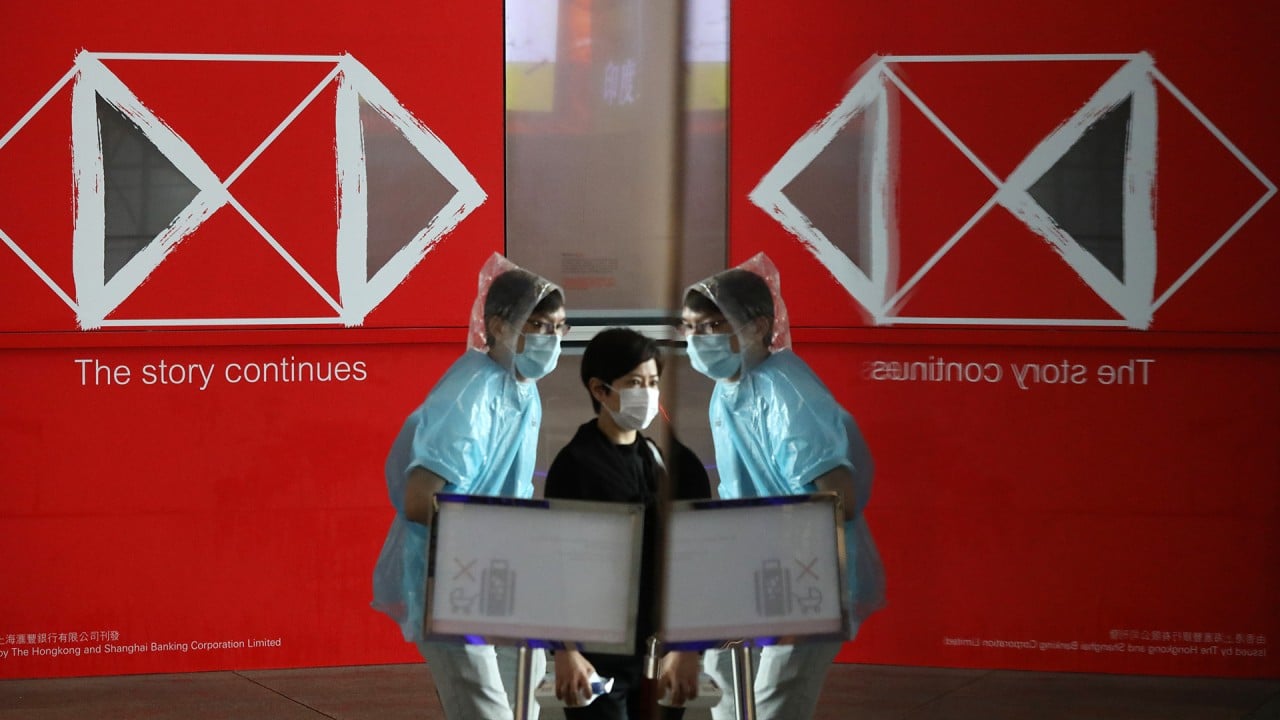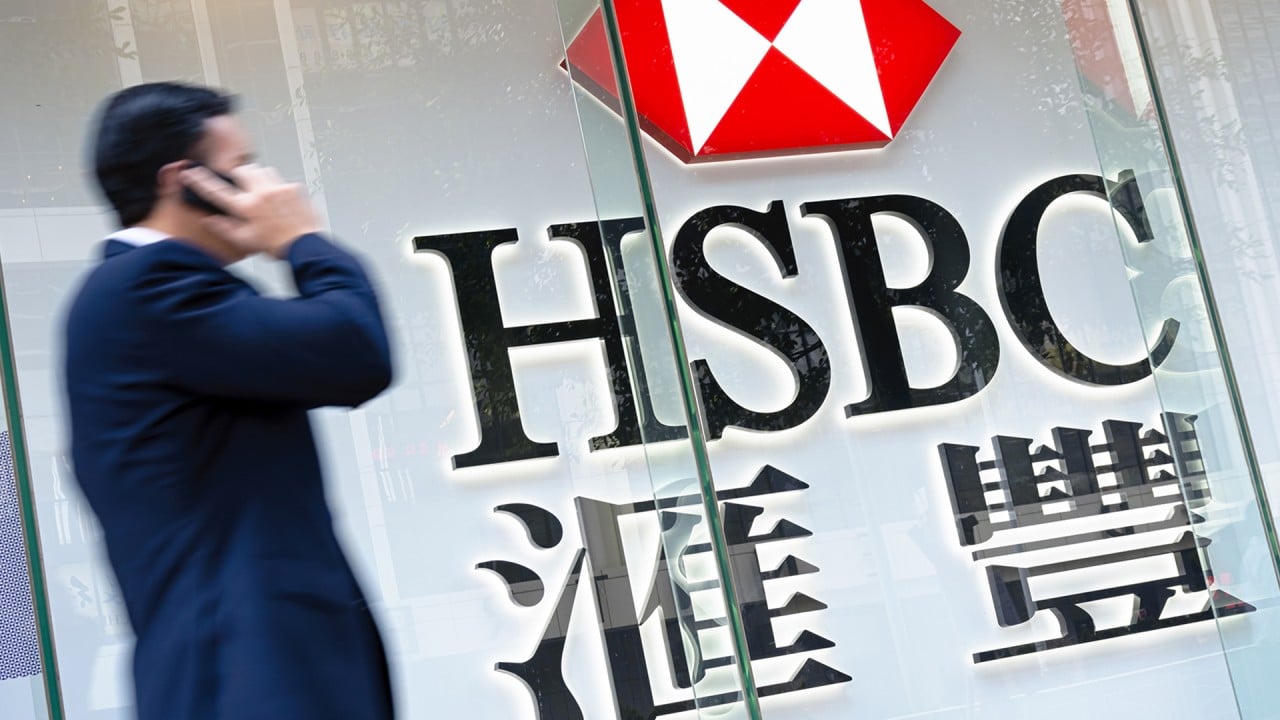
HSBC boosts bad loan provisions, sees second-quarter profit plunge as coronavirus crushes global business activity
- HSBC warned it could take provisions of up to US$13 billion for expected credit losses this year as coronavirus pandemic weighed on economic activity
- Pre-tax profit was US$1.09 billion, well below a consensus estimate of US$2.46 billion and about a sixth of the US$6.19 billion it reported a year ago
HSBC, the biggest of Hong Kong’s currency-issuing banks, warned it could take provisions for soured loans of as much as US$13 billion this year as its second-quarter profit dropped sharply because of weakening business activity globally from the coronavirus pandemic.
The bank also said it was “accelerating” efforts to cut its costs this year, with 4,000 employees and contractors leaving the company in the first half of the year.

02:05
HSBC sees second-quarter profits plunge by 82 per cent thanks to coronavirus
“We’re clearly committed to delivering on the cost reduction programme we identified in February. We also need to respond to the fact that revenue is softer now than it was,” Noel Quinn, the HSBC chief executive, said on a conference call with analysts.
“We have to see how Covid-19 develops over the next quarter or two quarters to determine how enduring this revenue position and cost position is going to be.”
The bank, Europe’s biggest by assets, is the latest among peers to massively step up provisions for bad loans because of the economic fallout from the coronavirus pandemic. Banks including JPMorgan Chase and Banco Santander have set aside tens of billions of dollars in additional reserves.
Like its rivals, HSBC adopted new accounting standards in 2018 that require it to recognise potential credit losses over the life of a loan and more aggressively write down loans if they have experienced a significant increase in credit risk.
HSBC’s pre-tax profit was US$1.09 billion, well below a consensus estimate of US$2.46 billion by analysts polled by the bank, and about a sixth of the US$6.19 billion it reported a year earlier.
On a net basis, the bank reported a second-quarter profit of US$192 million, compared with US$4.37 billion a year ago.
Revenue declined 12.1 per cent to US$13.1 billion in the second quarter, while net interest income fell 11.7 per cent to US$6.9 billion.
Shares of HSBC declined 4.4 per cent to end Monday at HK$33.40 in Hong Kong.
The second-quarter results will put pressure on consensus estimates for the remainder of this year and 2021, “driven by the range of possible impairments; relentless downward pressure on [net interest margins] and normalisation of trading performance”, Morgan Stanley analyst Nick Lord said in a research note on Monday.

04:41
HSBC doubles down on Asia in massive staffing overhaul
A resurgence of coronavirus infections – and additional threats of economic damage – comes as HSBC and other lenders were already facing a challenging environment from low interest rates and worsening US-China relations.
“Tensions between China and the US inevitably create challenging situations for an organisation with HSBC’s footprint,” Quinn said on a call with journalists. “We have always been the bridge between China and the international trading community. We believe we can bring the greatest long-term benefit by continuing to do so whatever the political context at the time.”

Pre-tax profit in its Hong Kong business declined 28.8 per cent to US$2.25 billion in the second quarter, compared with US$3.16 billion in the prior-year period.
Profit at its subsidiary Hang Seng Bank fell by exactly a third to HK$9.14 billion in the first half of the year, hurt by a tripling of provisions for expected bad loans. Hang Seng Bank also said it would cut its dividend to HK$1.90 a share in the first half as it conserves capital, down from HK$2.80 a year ago.
Quinn said the bank reduced annual costs by US$300 million in the first half of the year and expects to cut them by an additional US$500 million in the second half. The lender previously targeted US$1 billion of cost cuts this year and plans to make up the difference in 2021, he said.
Despite the uncertain economic outlook, HSBC benefited in the second quarter from a volatile trading environment, which boosted revenue in its global markets business by 55 per cent. The global banking and markets business overall reported pre-tax profit down 21 per cent to US$866 million in the quarter.
Pre-tax profit in its wealth and personal banking unit fell 55 per cent to US$813 million, while profit in its commercial banking business fell to a pre-tax loss of US$582 million, compared with a profit of US$1.9 billion a year ago.
Additional reporting by Enoch Yiu

